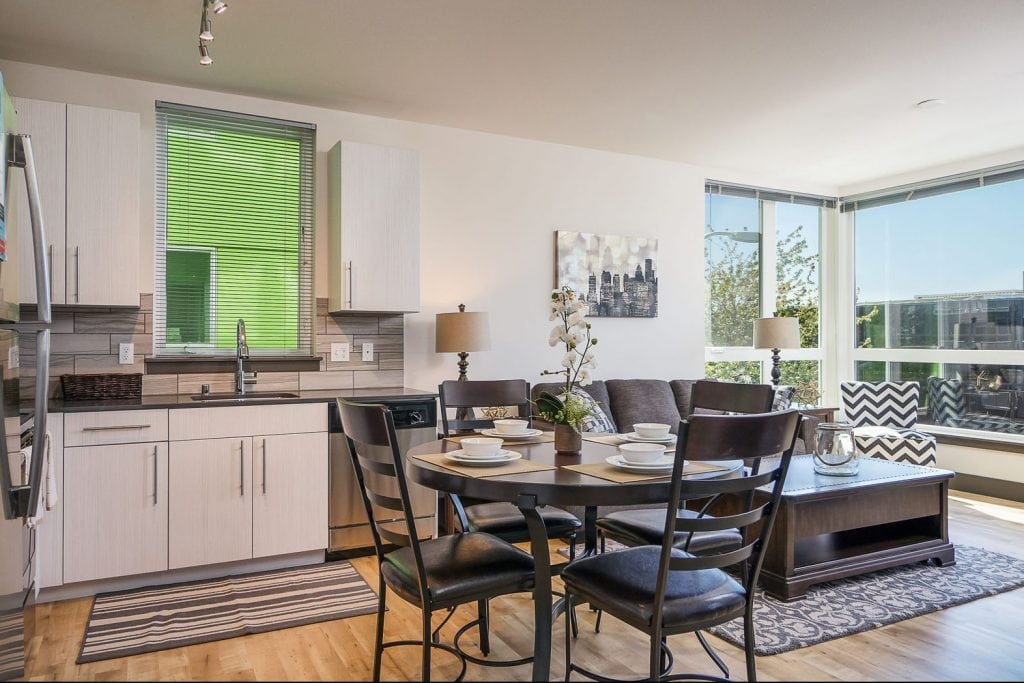Interview: Stay Alfred CEO on Building the Future of Vacation Rental Tech

Skift Take
The vacation rental market is one of the most dynamic parts of the travel landscape today. Underpinning the whole ecosystem is a complex network of technologies, which we believe are essential for leaders in the space, regardless of role, to understand.
To this end, last week we launched the latest report in our Skift Research service, Decoding the Modern Vacation Rental Technology Landscape.
Below is an interview with Jordan Allen, the CEO of Stay Alfred, and Roth Fouty, its vice president of technology, that has been edited for length and clarity. Stay Alfred is one of a new generation of ‘Hotel 2.0’ vacation rental property managers that are trying to bring hotel-like brand standards and scale to the vacation rental market.
We think that our conversation with Stay Alfred highlights the massive technological hurdles the operators face. For instance, off-the-shelf technology may not meet their needs and third-party software must be integrated in a scalable way.
There are other types of operators as well – we define three in our report – each with their unique tech needs. The vacation rental technology landscape is rapidly evolving and those not paying attention will find the ground moving beneath their feet.
Get the full report here to stay ahead of this trend.
Skift: Tell us about the technology that you've built to run your business?
Jordan Allen: Every person in our company needs to be able to have technology at their fingertips because not every guest is in the same location in the city. We have people that operate at the city level, not at the building level.
Roth Fouty: For us, the big thing that we've strategically worked on over the last year is getting our data under control. In the hospitality space, there's a ton of off-the-shelf products that you can use, from property management systems to channel management systems to systems that build your own website. We wanted to start getting a better feel for our own data so we could be more informed about how to price and improve our guest experiences.
Skift: Now that you have cleaned your user data, what are your plans for what to do with it?
Allen: The goal is to provide the absolute best customer experience for our guest every time.
Fouty: We want to move towards a more personalized experience with that data.
We spent a lot of time creating and implementing our customer relationship management (CRM) tool and integrating our data into it. So now when a guest calls, we already know whether this guest has booked with us and where they are staying.
Another system we are heavily focused on is our revenue management system and will continue to invest heavily into it in the future.
Preview and Buy the Full Report
Skift: Why did you decide to build your own revenue management system?
Allen: Finding the right price, at the right time, for the right channel and the right person is extremely difficult. I think having control of your own pricing platform is critical when you start to operate at our scale.
Fouty: We spend a lot of time looking at our reservation data — when guests book, what the velocity of booking is, which is constantly challenging us on how we can better capture increased demand in a market or how to strategically price when demand is down.
Allen: We look at several sources of internal and external data. It's probably the hardest part of our business. Pricing is just incredibly difficult no matter how you slice it.
For instance, prior to Airbnb, accommodation supply was relatively consistent. You knew the pipeline of hotels that were getting built, so you didn’t have to take supply into account when setting prices. Now, with Airbnb you have supply that can fluctuate daily. When the Pope is going to Philadelphia, you're going to have 500 new homes on the market in an hour and that can drastically affect your price.
Skift: Can you tell us a more about the other parts of your platform?
Allen: There are a few buckets of technology.
We have new website that we will start to roll out in mid-March, that will be state of the art. It collects so much more data around guest interactions that will help us better understand our guests and their interests. Our new site will feel much more like a high-end hotel experience.
We have our guest portal app that will be the hub of the entire guest experience. From making reservations, to getting you into your unit, it will be the way our guests interact with our brand. Our vision is that it will be the hub that integrates into other apps, like Uber or Lyft, so that our guests can utilize the app for all their in-travel needs
We are also working on our operational system that will help our staff effectively and efficiently manage our check-outs, cleanings, and maintenance on all of our units.
Skift: What tech does your team use on the cleaning and maintenance side?
Allen: This is where hotel software doesn't really work well. The vacation rental business is a bit trickier. How do you strategically move through a building with 140 units in it versus how you move across a city with outsourced cleaners? Those are completely different platforms.
We can really optimize our cleaning schedule based off when our guests are checking in or checking out.
How we optimize cleaning schedules really moves the needle on cleaning costs for us, which allows us to provide a lower cleaning fee to our guests than our competitors.
Preview and Buy the Full Report
Skift: Can we talk about smart home solutions? What are you doing with that kind of tech?
Fouty: The first place that we entered in that space was through smart locks and lockboxes. We integrated our system so that when a reservation comes in, we can generate codes and make sure that it's secure and only accessible to the guest checking in during the time of their reservation.
The next thing that we're building out is our own unified Wi-Fi networks in our buildings. In many cases, if you think about vacation rental experiences, you get the ‘Comcast Wi-Fi’ solution where the connection is spotty and unreliable. Our Wi-Fi solution is built with enterprise grade hardware which allows us to customize the guest experience and provide the same experience that hotels can today.
We are in the early stages of this program, but it is looking promising so far.
Skift: How much does this tech cost and are you seeing strong returns on investment?
Allen: We're talking millions in investment. We believe that we can create competitive advantages through technology that will allow us to deliver better guest experiences at scale. It has become increasingly important to control our technology stack or partner with vendors who share our same vision, which can be difficult in this space since most professional operators do not manage the [same] volume of units as us. Without this control, it could be detrimental to our business.
The technology to be able to operate thousands of properties around the world is next level.
Skift: It sounds like your team is really going after the hotels and bed and breakfasts in terms of scale, operation, and brand.
Allen: I think what's happened is an entirely new category is being created – Airbnb meets Marriott.
Hotels have really been the only game in town and have had one offering. Airbnb has done a great job at bringing new variety to the travel space. Yet Airbnb can be stressful, we know our guests don't have a lot of vacation days and you need to know that somebody will be there to take care of you during your stay.
Our focus is on reliability, quality, and consistency. The reason why we think Facebook won over Myspace is they had a clean, consistent look and you knew what you were going to get on everybody's page and we want to create that same experience for our guests.
What we're doing is creating an entirely new hospitality brand. It's a consistent short-term vacation rental experience where you know what you're going to get every time.
That's where we're at. It's a totally new hospitality experience that doesn't really exist right now.
Subscribe now to Skift Research Reports
Decoding the Modern Vacation Rental Technology Landscape is the latest in a series of research reports, analyst calls, and data sheets aimed at analyzing the fault lines of disruption in travel. These reports are intended for the busy travel industry decision maker. Tap into the opinions and insights of our seasoned network of staffers and contributors. Over 200 hours of desk research, data collection, and/or analysis goes into each report.
After you subscribe, you will gain access to our entire vault of reports, analyst calls, and data sheets conducted on topics ranging from technology to marketing strategy to deep-dives on key travel brands. Reports are available online in a responsive design format, or you can also buy each report a la carte at a higher price.





